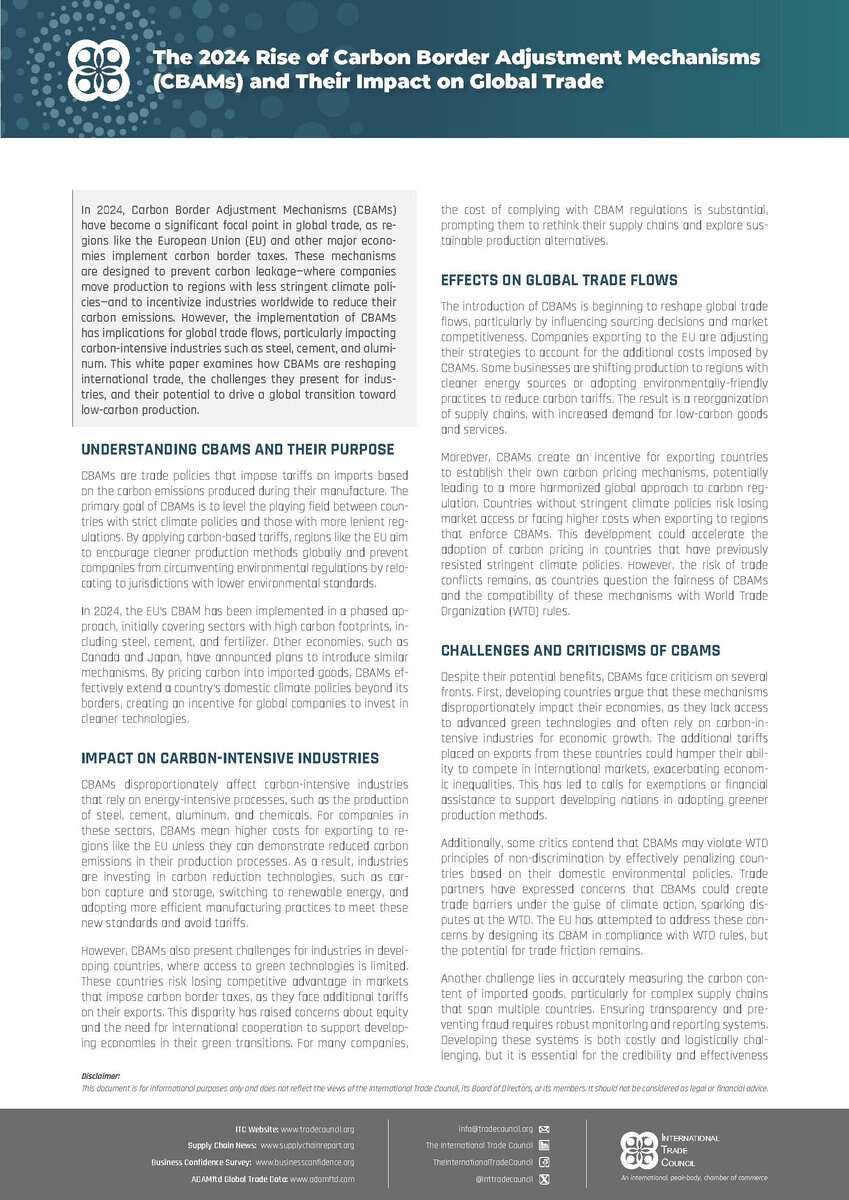About the Book
This white paper explores the transformative impact of Carbon Border Adjustment Mechanisms (CBAMs) on global trade, focusing on how these policies incentivize low-carbon production and prevent carbon leakage. Implemented by major economies such as the European Union, CBAMs impose tariffs on imported goods based on the carbon emissions involved in their production. These mechanisms aim to level the playing field for countries with stringent climate policies and push industries worldwide to adopt greener practices. The report examines the implications for carbon-intensive sectors like steel, aluminum, and cement, highlighting the shift in supply chain strategies and increased investments in renewable energy and carbon capture technologies.
The analysis also addresses the challenges CBAMs pose, including potential trade conflicts, compliance costs, and equity concerns for developing countries. While these mechanisms hold promise for advancing global climate goals, the success of CBAMs hinges on international collaboration, financial assistance for green transitions in emerging economies, and robust carbon measurement systems. This paper provides actionable insights for companies to adapt to CBAM regulations and for policymakers to design fair and effective carbon pricing systems, paving the way for a sustainable global economy.

